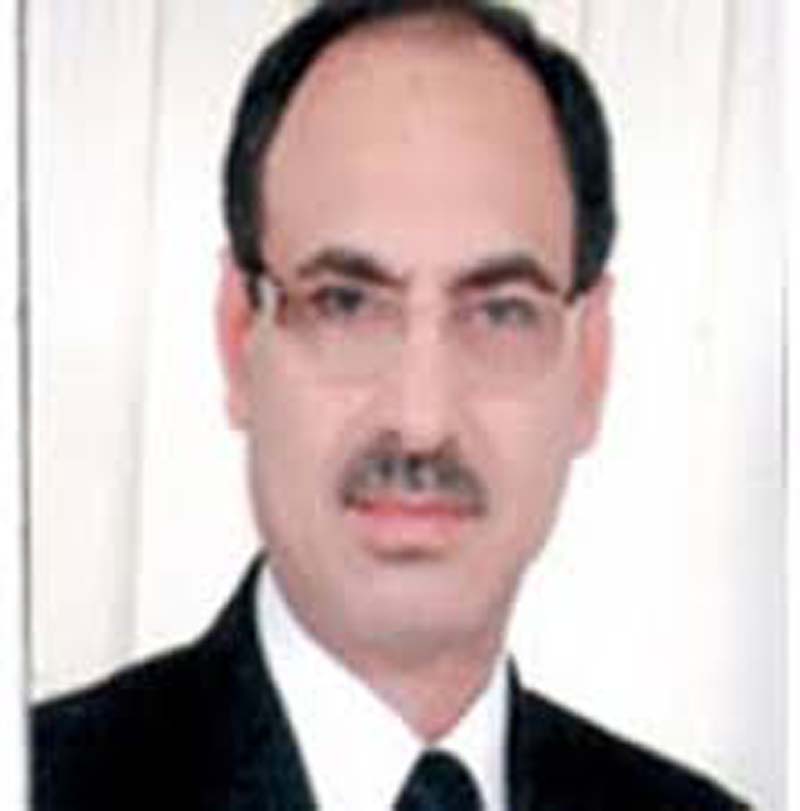‘Delete provision from State Legislature Members’ Pension Act’
Says largesse can’t be provided on tax payers money
Mohinder Verma
JAMMU, July 31: Jammu and Kashmir State Law Commission headed by Justice (Retd) M K Hanjura has recommended to the Government deletion of those provisions from the State Legislature Members’ Pension Act, 1984 whereby several luxuries are provided to the former Chief Ministers at the cost of the State exchequer on the ground that such a stipulation is clear cut violation of Constitutional principles of equality.
Official sources told EXCELSIOR that the State Law Commission, which has the mandate to revise the State Acts of general importance so as to simplify them and to remove anomalies, ambiguities and inequalities, considered the State Legislature Members’ Pension Act, 1984 and after thorough examination prepared its report.
In the report submitted to the Chief Secretary BVR Subrahmanyam, Justice (Retd) M K Hanjura, Chairperson of the Law Commission has declared Section 3-C (e) and (f) of the State Legislature Members’ Pension Act as arbitrary and not in consonance with any scheme or law.
The Section 3-C which pertains to facilities to ex-Chief Ministers states: “Notwithstanding anything contained in this Act, a member who is entitled to pension under this Act and who has served as Chief Minister of the State, shall be entitled to car, petrol, medical facilities, driver, rent-free furnished accommodation, expenditure to the limit of Rs 35,000 per annum for furnishing of the residential accommodation, free telephone calls up to the value of Rs 48,000 per annum, free electricity to the extent of Rs 1500 per month etc”.
“This provision on the fact of it appears to be arbitrary and not in consonance with any scheme or law”, the Law Commission said in the report, adding “the State cannot afford to provide largesse to those who have demitted their offices and are no longer in public service”.
The report further said, “incorporating such a provision is a luxury carved out to benefit the persons who had the occasion to serve the people at one or the other time. If such a provision is stretched further then it can well be said why such a facility cannot be provided to the Governors, Deputy Chief Ministers, Cabinet Ministers or other Constitutional functionaries”, adding “such a provision does not have any semblance or fairness attached to it and it cuts at the very root of the canons of law laid down by the Apex Court of the country in a catena of judicial pronouncements”.
Referring to the judgments of the Apex Court of the country and High Courts of different States, the Law Commission said, “the preamble to the Constitution of India embodies, inter alia, the principles of equality and fraternity and it is on the basis of these principles of equality and fraternity that the Constitution recognizes only one single class of citizens with one singular voice (vote) in the democratic process subject to provisions made for backward classes, women, children, SC/ST, minorities, etc”, adding “a special class of citizens, subject to the exception, is abhorrent to the Constitutional ethos”.
The Commission is of the view that natural resources, public lands and the public goods like Government bungalows/official residence are public property and the ‘Doctrine of Equality’ which emerges from the concepts of justice and fairness must guide the State in the distribution/allocation of the same.
“The Chief Minister, once he/she demits the office, is at par with the common citizen, though by virtue of the office held, he/she may be entitled to security and other protocols. But allotment of Government bungalow, to be occupied during his/her lifetime, would not be guided by the Constitutional principle of equality”, Justice Hanjura has mentioned in the report.
The report further said, “discrimination not only by substantive law but also by law of procedure has always been condemned by the courts after taking umbrage under the provisions of Article 14 of the Constitution of India. The action of the State whenever and wherever it is arbitrary, violates the very soul of Article 14 and the courts have thought it expedient to strike down such actions”.
Stating that arbitrariness negates the rule of law, the Commission said, “bungalows allotted to the public functionaries constitute public property which is too scarce to find out and the object behind such construction is that these are allotted to the current holders of the public offices”, adding “the questions regarding the allocation of such properties involve public character and therefore would be amenable for being adjudicated upon by the court on the strength of reasonable classification and arbitrariness”.
“The Chief Minister or any other Constitutional Functionary once he/ she demits office has to be treated on par with a commoner in the society, the exception being that by virtue of the office held he/she may be entitled to security and other protocols”, the Commission further said.
Stating that allotment of a Government Bungalow during his/her life time is a luxury provided at the cost of the State exchequer on the tax payers’ money, the Commission said, “this act is not guided by the Constitutional principles of equality. Not only this, the seven principles of public life as enumerated in the judicial dictum do not support or warrant the arrangement of such an allotment as has been provided to ex-Chief Ministers under the provisions of State Legislature Members’ Pension Act, 1984”.
With these observations, the Law Commission has recommended that Section 3-C (e) and (f) of the State Legislature Members’ Pension Act, 1984 may be deleted and wiped off from the next and texture of the Act.


